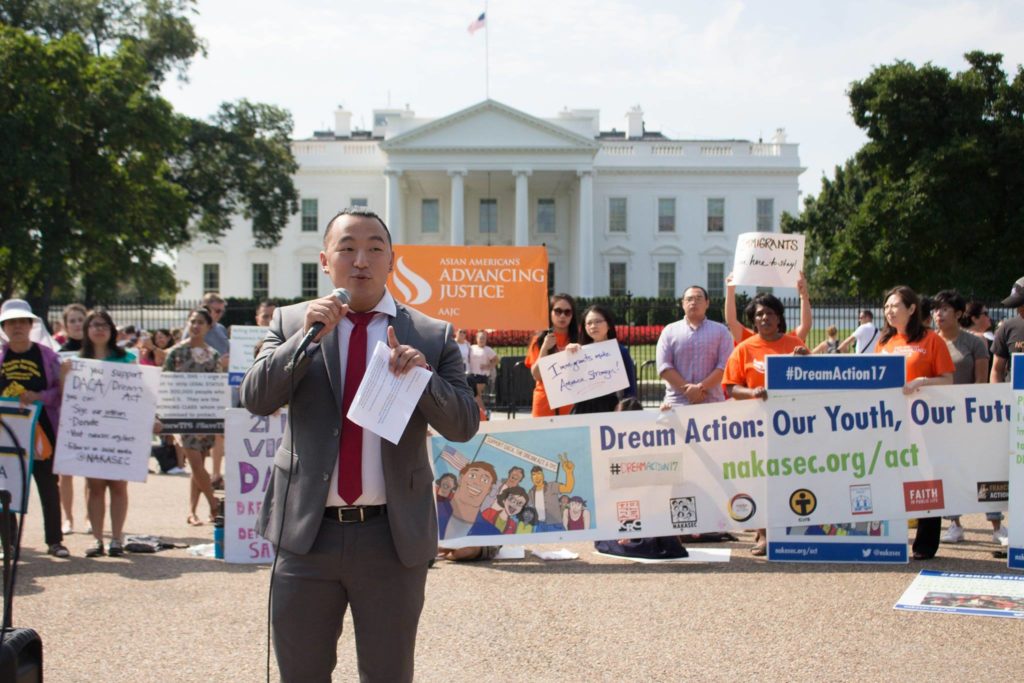November 29, 2018 IN: Our Voices, Staff Blog
A Love Letter to America

“He chose his country because he loved his family.” My parents have repeated those words to me for more thanover two decades when describing my grandfather. In the fallout of the Vietnam War and in the ensuing escape from Laos, he and his men guided my family across the Mekong River. And in the dark of the night, he left them at a Thai refugee camp and returned to the jungles of Laos. He spent years resisting a government that hunted my peoples before he and his men were ambushed.
I was born in that camp, a location that I often cannot pronounce. My green card still lists me as a Lao national, even though I’ve never been there nor do I remember the chain fences from my birth. After I was born, my parents crossed an ocean to California and then to Minnesota. My parents struggled —- selling trinkets at flea markets and working from dawn until midnight, manufacturing your hearing aids and heart catheters. And in the space between their love, I learned in snow- covered streets that I was just American enough, but still not American.
Throughout my adolescence, I was ashamed of the rocks hurled at our cars, the slurs thrown in our faces, and the pity tossed in our direction. But my time at college taught me to look inward, to understand my parents —- that they are American in their copper skin, brown eyes, and jet black hair. And in that understanding, I realized that it was America that should be ashamed of the ways in which we have treated refugees and immigrants.
So at 18, I helped a group of recent Burmese, Bhutanese, and Karen refugees organize and fight to save an educational program that allowed them to procure a high school diploma. And we won. But I remember what a young Burmese woman said during one of our strategy sessions: “My country has taken away my home, my family, and my education. I come to America only to find that they, too, are trying to take my education away from me.” Those words continue to stay with me. I’ve since spent over a decade of my life working to advance the rights of immigrant and refugee communities.
I now work at SEARAC because, like my grandfather, I, too, choose my country. I love the only country I have ever called home, but our laws are flawed. We hurt and deport immigrants without consideration of history, of community, nor of impact. We target and retraumatize those who seek shelter on our shores. But because I love our country, I am committed to making her better for all of us. Through SEARAC, I choose to resist efforts to tear my community from the only home many of us have ever known.
Kham S. Moua is SEARAC’s new Immigration Policy Advocate. To contact him, e-mail kham@searac.org.





